Akira Nakamura
출생 : 1916-04-07, Ikebukuro, Tokyo, Japan
사망 : 1969-12-09

Dr.Sakurai
An evil brain from outer space unleashes monsters with deadly diseases on Earth with trying to conquer the universe. Superhero Starman must battle them all to save his planet.

Akihiko, the father
The last film produced by Shintoho.

Michi's father
A leading postwar Japanese film critic and theorist who co-founded the seminal film magazine Eiga Hihyo (Film Criticism) in 1957, Eizo Yamagiwa made his directorial debut with this independent feature—long thought lost until a negative was recently discovered—about a group of idle bourgeois students known as the “Roppongi Tribe” (Roppongi zoku). Depicting the resignation and nihilism of the postwar generation in the years following the Anpo Treaty conflicts through a coming-of-age narrative, Yamagiwa offers sharp criticism of the prevalent characterizations of Japan's new youth offered by Nikkatsu's taiyozoku (“Sun Tribe”) films and the New Wave at large.

Kazuko Matsuo sings the theme song to this drama film.

Vice principle
Home drama about tin craftsmen and their families in downtown Tokyo. Though poor, they do not lose their cheerfulness or give in to oppression.

Professor Yajima
대학생인 시로는 야지마 교수의 딸 유키코와 약혼식을 올린 날, 친구 타무라와 차를 타고 가던 중 실수로 사람을 치게 되고 도주하지만 목격자가 있다. 자수를 결심한 시로는 유키코와 택시를 타지만 교통사고로 유키코마저 잃게 된다. 실의에 빠진 시로는 술로 시간을 보내다가 어머니가 병에 걸렸다는 소식을 듣고 집으로 돌아온다. 어느 날 야지마 교수 부부와 타무라가 시로의 아버지가 운영하는 양로원의 10주년 기념 행사에 참석하기 위해 시로를 방문한다. 모든 메인 캐릭터들이 모인 가운데 각자의 죄목에 따라 지옥으로 떨어진다.

Two lovers lost in the mountains. In what direction do not go, they find themselves in a mysterious forest pond, as if some kind of force does not want to let them go. Once upon a time, over a century ago, there had been a crime, whose shadow still hovers over these places.
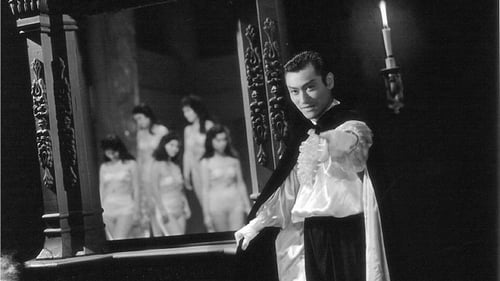
Shigekatsu Matsumura
20년 전 홀연히 사라진 미와코는 20년 전 그대로의 모습으로 갑자기 집으로 돌아온다. 미와코의 딸 이토코는 한 미술 전시회에서 자신의 엄마와 닮은 여자의 누드 사진을 보게 된다. 이토코와 신문 기자인 그녀의 약혼자 타미오는 진실을 파헤치기 위해 나선다.

Japanese crime film
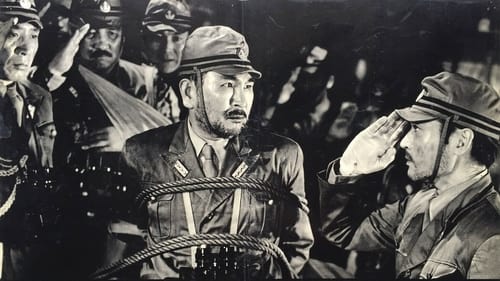
Priest Hanayama
In 1941, overpopulated Japan faces an economic boycott and its armed forces push further to the south. And despite negotiations between Japan and the U. S. A. war is declared with the attack on Pearl Harbour. Victories follow for Japan on land and sea and her forces push forward to the borders of India. But gradually the tide turns in favour of the Allies and after the atom bombings of Hiroshima and Nagasaki, Japan is compelled to accept the Potsdam Declaration and by the order of the Emperor agrees to unconditional surrender. Under the supervision of the occupation forces the International Military Tribunal opens in Tokyo to try the Japanese war leaders. Established in the cause of justice, and to prevent future aggressive wars the trials drag on for two and a half years. And on December 23, 1948, General Tojo and six other war leaders mount the thirteen steps to the gallows at Tokyo's Sugamo prison.

First film in Teruo Ishii's Line series.

다자와 헌병오장과 아키코는 나미지마 헌병소위의 질투를 뒤로 하고 결혼한다. 헌병대에서 기밀문서가 도둑맞는 사건이 일어나고, 소위의 음모로 누명을 뒤집어쓴 오장은 총살당한다. 오장의 동생 다자와 이등병은 형의 복수를 맹세하며 헌병대에 입소하고, 겁탈당한 아키코 역시 복수를 꿈꾸며 중국 대륙으로 향한다. 한편 소위의 앞에 다자와의 유령이 출몰하기 시작한다.

Shigenobu Hishikawa
A painter leaves his family to paint the homes of his rich clients. A lonely, ruthless samurai falls in love with the painter's wife and rapes her. He later murders the painter and his servants. From the afterlife, the painter's ghost seeks revenge on the samurai, and saves his wife and newborn child.

The 7th Super Giant film. Super Giant battles a marauding alien brain-like creature created by a mad scientist and an alien army. (stand-alone episode)
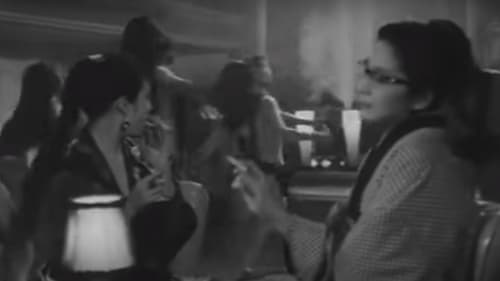
Director Teruo Ishi's crime action follows the investigative adventures of an undercover cop working with a prostitution ring. It's done in an unique documentary style.
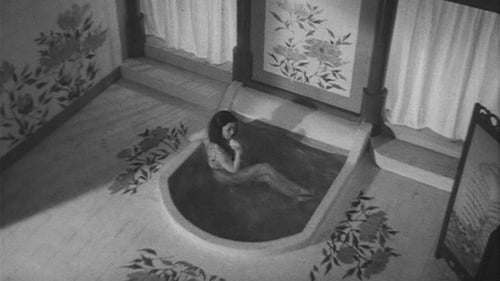
Jinjûrô Koga
메이지 시대, 희대의 독부로 불리운 여자가 있었다. 그녀의 이름은 다카하시 오덴! 남자와 헤어진 후 빠져들게 된 악행 속에서 슬프고도 애욕적인 그녀의 파란만장한 삶이 펼쳐진다.

1958 jidaigeki directed by Masaki Mori for Shintoho.

The 4th Super Giant film, in which he continues his fight against the Kapia Aliens (Part 2 of 2)

The 3rd Super Giant film, in which he saves Earth from the threat of the reptile-like Kapia Aliens.

Shinzaemon Fukami
A blind masseur visits a samurai to request the return of a loan. The samurai kills him in anger, then has his servant dump the body in the Kasane swamp. However, the ghost of the masseur returns to haunt the samurai, who kills his wife by mistake and then goes to the swamp and drowns himself. 20 years later, the masseur's daughter unknowingly falls in love with the samurai's son who has been brought up to be a servant. After she is horribly disfigured in an accident, he plots to run away with another woman, but the path of their escape lies by the Kasane swamp...

Fictionalized retelling of the life of a Geisha poisoner.

Yukio
It's a man's world. Shimamura, an artist, comes to this snowbound town to rejuvenate himself. He connects with Komako, a geisha he met on a previous trip, and it seems like love. She's the foster daughter of a local family, almost engaged to the family's son Yukio, now dying of consumption. He's tended by his sister Yuko who's angry at Komako for abandoning her brother. Shimamura returns to Tokyo but promises he will be back soon. In anticipation of his return, Komako breaks with her patron and her family loses their home. Complications arise when Shimamura doesn't come back as promised. Then Komako discovers that he and Yuko knew each other in Tokyo. Can Komako escape destiny?
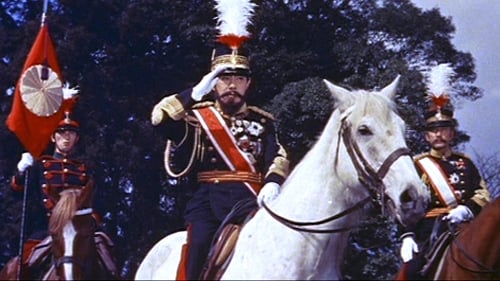
Admiral Itō
Meiji Tenno portrayed the ramp up to the Russo-Japan War. In addition to showing the political events that led to war, it also showed the era from the story of a farm family in rural Japan who sent their son off to war. As such, it could be considered an anti-war movie, showing how, while war is devised by governments, the people do not really understand what war is, and it's combatants often do not know what they are fighting for.

An exciting historical drama in which a beautiful woman secretly solves the family problems of the Owari clan. Hibari Misora plays two roles: a charming princess and a dashing youngster, performs songs and dances throughout the film until the big decisive battle.

Admiral Isoroku Yamamoto leads the Combined Fleet of the Imperial Japanese Navy to defeat the American Fleet.
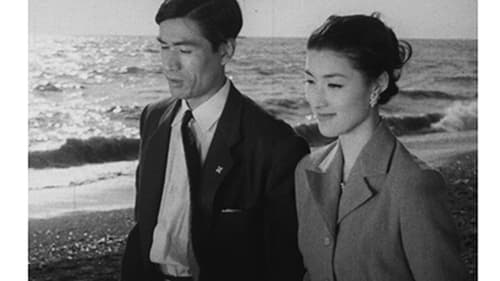
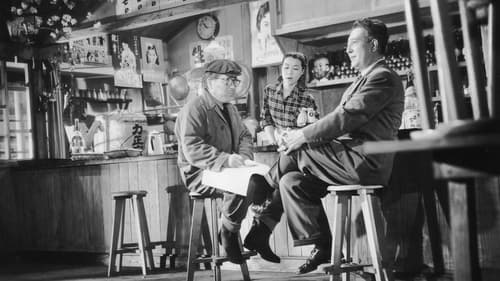
Taga
Takes place in one place, a beer hall, over the course of one evening. Uchida employs this concentration of setting and time to fashion a microcosm for a group portrait of Japan. One by one, the regulars of the bar appear: the pianist who dreams of becoming a composer but has disappeared from the music world after a knifing; a stripper who had planned to be a ballet dancer; an elderly painter trying to make a living at pachinko, and who rues his art having been used for militarist propaganda during the war; a young waitress considering elopement; a colonel turned real estate broker who attempts to rouse the crowd in military song until he realizes the tune has been transformed by marchers in the street into a leftist chant. The "twilight" is more than just a time of day; here, it is a state of being, a suspension between past and present, between the camaraderie of the saloon and the harsh world outside.
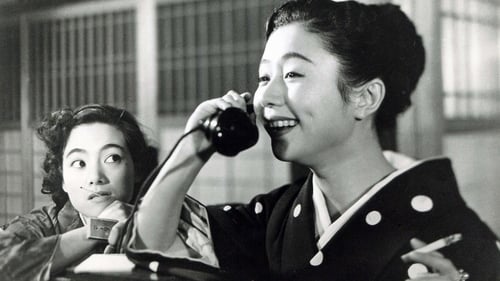
An Inn at Osaka, rarely seen outside Japan, follows the story of an insurance company executive from Tokyo, Mr. Mito, who is demoted to the Osaka office. He takes a room at a small inn and tries to rebuild his life. Notable for its exquisite framing and cinematography, An Inn at Osaka allows its complicated plotlines to disappear behind the minutiae of penury and humiliation that Mito and others suffer during the post-war economic and social reconstruction.
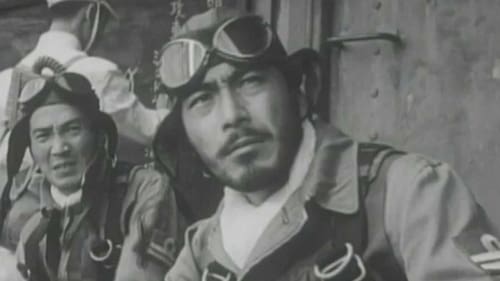
Admiral Isoroku Yamamoto, a brilliant tactician, is a loyal subject of the emperor, despite his grave misgivings about leading Japan's navy into war with the United States. He opposes the attack on Pearl Harbor, but, overruled, he leads his forces to the best of his ability.

Kingoro Yanagiya's 100th film.

1952 Japanese film directed by Kunio Watanabe.

"My mother is Japanese, a drifting diva of Tokyo" After the death of her father Reika goes to Japan to visit her mother, but can't find her, so she starts performing at a cabaret in Yokohama. Her mother, already settled, found about Reika's whereabouts, but won't acknowledge her daughter for fear of loosing her current status.

Tanuma Kandayuu is a high class samurai of the house of Nabeshima. He finds a lavish board of Go (a Chinese Board game) at Kinbei's store. He recommend Kinbei to offer it to his lord. Kinbei hesitates at first, since he knows the board has a mysterious legend surrounding it; it's believed that for every game played on the board, one death is required.

Kôfuku eno shôtai - Invitation to happiness
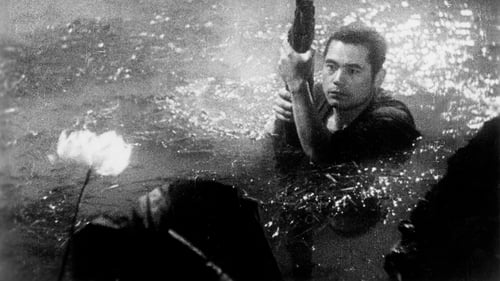
Toranosuki Niiseki
The story of Sanshiro, a strong stubborn youth, who travels into the city in order to learn Jujutsu. However, upon his arrival he discovers a new form of self-defence: Judo. The main character is based on Shiro Saigo, a legendary judoka.

Isamu
Hanakosan (1943, TOHO, MAKINO Masahiro), a thoroughly light and joyful musical comedy, influenced by Busby Berkeley films, against the national policy under the wartime, was made into a film from comic serials by SUGIURA Yukio published in a magazine.
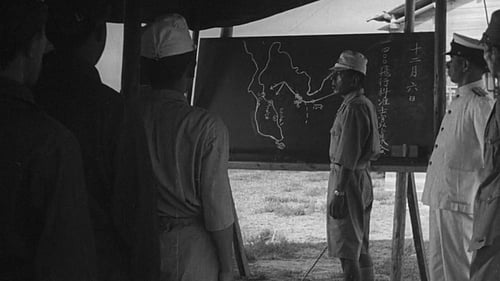
Tadaaki Tachibana
Japanese Navy air cadets train for the attacks on Pearl Harbor and the HMS Prince of Wales.
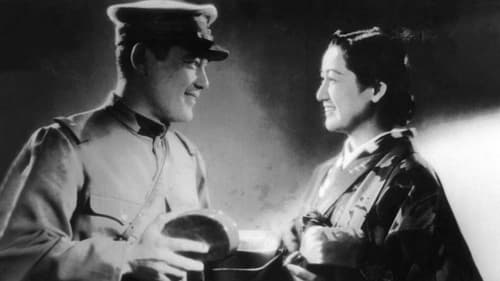
In this semi-documentary, an older locomotive driver is tasked with training younger ones and is currently training two in particular. The old man is finding the task overwhelming as it is hard work with practical lessons and classroom components. His wife has died, but he has three daughters with the oldest taking care of her younger siblings.

























